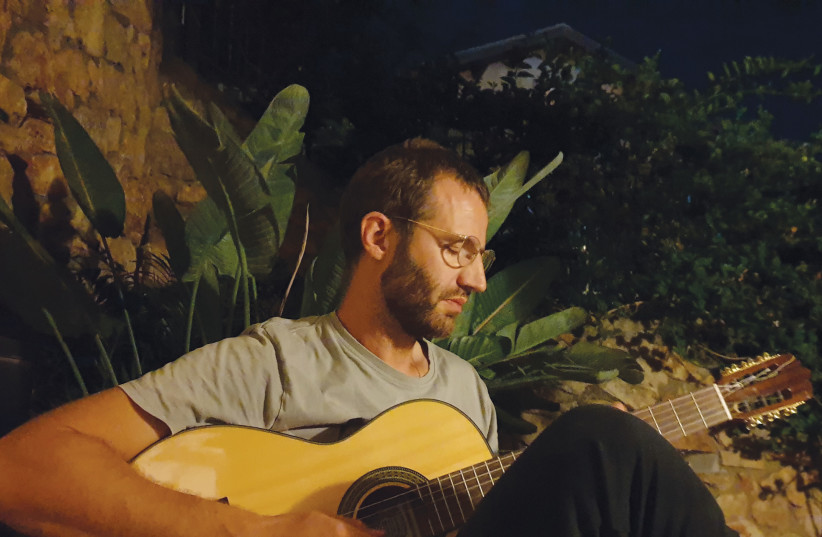A few weeks before the first COVID-19 lockdown in 2020, audiologists David and Marie Nativ left their comfort zone in a Parisian suburb – and the hearing aid business they ran – to plunge into a life adventure. With their daughter and son, then aged eight and six, the family arrived at Kibbutz Ketura in the Negev for their initial absorption.
Ketura is 50 km. north of Eilat and a two-hour drive from Beersheba. A cooperative non-privatized settlement, it is known for its religious pluralism – with Shabbat and kashrut observed in public areas – its highly educated population, and various industrial and ecological initiatives. Though member families comprise fewer than 400 people, volunteers have a significant presence.
 Learn how to buy your home in Israel with confidence
Learn how to buy your home in Israel with confidenceAs Marie explains, “We decided to move to Israel for a new beginning and to build something new. [Similarly] we took various decisions in the past for moving forward.” Along with their relocation they changed their family name from Lecourt to Nativ, a decision bearing on their state of mind. Marie describes aliyah as a crossroads for them “to embark on a path that opens up new possibilities. Nativ – which means path – was perfect!”
After completing six months of ulpan, David worked as a handyman, while Marie managed the early childhood nursery. During this last half-year, however, David, who holds an MSc. in computer science, has reverted to his original vocation and works remotely for an American company in Tel Aviv as a research engineer. He plans to continue this high-tech career direction after the family leaves Ketura in July and maybe to combine computer science with music.
When the Nativs considered aliyah, education was a predominant concern, though they had favorable expectations about their children’s future in Israel. Another consideration was religious life. They were uncomfortable with the stark choice in Paris “between being either in a very Orthodox world, or almost without Jewish identity. Israel offers 1,001 ways of living one’s attachment to the roots,” David says.

He had visited Israel several times, starting with his bar mitzvah and youth movement programs, and then volunteering for four months on Kibbutz Ein Hashofet at age 20. Actually in 2019, when the Nativs came to Israel for two weeks to celebrate David’s 40th birthday, this recent experience precipitated their aliyah.
For Marie, who grew up Catholic in Bordeaux and converted after her marriage, Ketura was her first kibbutz experience. She learned Hebrew fast and still attends ulpan at Kibbutz Yotvata nearby. She met David in 2005 when they were classmates at audiology school in Paris. At the time of their civil marriage, “Judaism was at the center of our concerns,” she relates. How would the couple transmit Jewish identity to their children?
David came from an assimilated, minimally traditional family with spiritual leanings. When they enrolled the children in Jewish kindergarten, Marie undertook the process of Orthodox Jewish conversion. “After three years of studying and practicing Jewish life, participating in the community, the children and I took a final exam before going to the mikveh. We got married religiously in our garden, under the chuppah, with our children next to us. What an accomplishment!” While in France both children attended very open Chabad schools.
Their kibbutz time has been an enriching experience for the Nativs. The children, now 11 and nine, are well integrated here. Marie is thrilled that they enjoy so much independence, have learned how to think, be socially responsible, and are so involved with their peers.
They want them “to learn about France, the literature, painting. We found online French lessons for expatriates, so they study French three times a week,” she says. She also remarks of Ketura, “I met more people with interesting histories here than I did all of my time in Paris.”
David was motivated by the beauty of the Arava desert to teach himself video editing. Marie likes to walk in nature, and is also enthused by the “large spaces and variations of light. I never tire of the landscapes of the Arava. There is such power and such life in the desert that I am always amazed; it is not at all a dead land.”
David, who started teaching himself classical guitar at age 20, is a gifted musician who recently taught guitar for a year at the Yotvata cultural center. He has worked intensively with amateur bands in gypsy jazz, flamenco and especially Brazilian music. He recently learned the bouzouki and other instruments to create a YouTube channel in his name and broadcasts his creative endeavors.
Marie practices Thai boxing for relaxation. “Contrary to what one might think, the practice of boxing is friendly,” she says. “I have always met people who are attentive to others and have great respect. Boxing is not just a sport; it is a discipline as good for the body as for the mind.”
Now that they are moving onwards this July, the Nativs are seriously exploring job opportunities. Though Marie is checking out accreditation for audiology, it is not simple for audiologists with overseas certification to requalify. She has a great interest in design, and for this reason has started to learn UX, user experience design.
Without a car until now, the family sometimes found Ketura’s geographical remoteness challenging. They need to buy a vehicle, find suitable employment and a rental apartment, all of which entail some financial challenges. They also miss their families, who were unable to visit during the pandemic.
Nevertheless, the Nativs have ”lots of curiosity about real life in Israel: continuing the adventure, getting to know new places, new people, being an active part of Israeli society is our next step,” they declare. ■
David, 43, and Marie Nativ, 36
From Paris to Kibbutz Ketura, January 2020
 Sign up for our newsletter to learn more
Sign up for our newsletter to learn more 